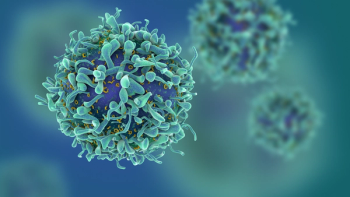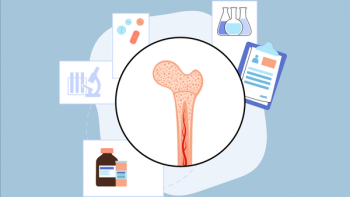
Jeneth Aquino, DNP, FNP-BC, explains that using ctDNA to guide a patient’s next steps can provide clarity in the treatment process.

Jeneth Aquino, DNP, FNP-BC, explains that using ctDNA to guide a patient’s next steps can provide clarity in the treatment process.

Leaders in oncology nursing and advanced practice spotlight the essential role of advanced practice providers in oncology.

Scott C. Borinstein, MD, PhD, discusses how holistic and empathetic care defines pediatric oncology.

How best can senior staff and leadership support nurses new to the field of oncology?

Increased use of consultations, breast MRIs, genetic counseling, and other testing in high-risk patients were a direct result from nurse-led high risk referral protocols.

A tiered level preceptor recognition program offers a cost-effective organizational intervention designed to acknowledge and incentivize the contributions of advanced practice preceptors.

"Differential diagnoses in patients with bicytopenia—particularly those with preserved platelets—are broad and require careful physical examination."

Meredith Donahue, APRN-BC, discusses emerging therapies in metastatic prostate cancer.

Ellen Miller, MSN, FNP-BC, an oncology nurse practitioner, explains how she uses wreath-making to maintain a healthy work-life balance.

Clint Koerkenmeier, MHS, BSN, RN, shares which strategies his institution leverages to support oncology nurse employees.

Veno-occlusive disease or sinusoidal obstruction syndrome is commonly associated as a complication with transplant in pediatric patients but can also be seen with chemotherapy alone.

A 5-year analysis of the phase 3 KEYNOTE-426 trial showed continued benefit with pembrolizumab plus axitinib for patients with advanced treatment-naïve clear cell renal cell carcinoma.

A genome-wide methylome enrichment platform may help identify multiple early-stage cancers.

Triple-negative breast cancer often occurs in women younger than 40.

Heather Jackson, PhD, FNP-BC, NEA-BC, FAANP, provides a case-based perspective on the benefit of auricular acupuncture as a tool for managing cancer pain.

Ellen Miller, MSN, FNP-BC, a nurse practitioner who specializes in survivorship care, underscores what conversations surrounding fertility and pregnancy may look like after radiation.

CAR T-cell therapy represents a viable treatment option for many patients, but there are potentially serious adverse events.

In this episode of "The Vitals," Heather Jackson, PhD, FNP-BC, NEA-BC, FAANP, shares her experience helping a patient reduce their opioid use through acupuncture treatments.

In this episode of "The Vitals," Ellen Miller, MSN, FNP-BC, talks about meeting a patient who realized she wanted to get pregnant after undergoing chemoradiation as a teenager.

Tivozanib, an oral VEGF inhibitor, improved overall survival in patients with relapsed or refractory, advanced renal cell carcinoma.

Menstrual suppression can improve outcomes and quality of life in premenopausal women undergoing hematopoietic stem cell transplant.

Karen Hande, PhD, DNP, ANP-BC, CNE, FAANP, ANEF, discusses increased patient interest in cannabinoids and how oncology nurses can steer pain management conversations to keep patients informed.

Karen Hande, PhD(c), DNP, ANP-BC, CNE, FAANP, ANEF, explains the difference between some of the popular cannabinoid products that patients with cancer may be taking.

Understanding various clot characteristics and bleeding risk factors can help providers carefully manage acute venous thromboembolism.

Utilization of specialty nurse practitioner driven teams and use of individualized pain protocols for patients admitted with vaso-occlusive pain crisis improves quality of life for patients with sickle cell disease, and decreased hospital stay times.

Approval of off-the-shelf CAR T-Cell therapy options would provide greater accessibility and benefit to patients, say experts.

Specialty nurse practitioners can help tailor pain management programs for patients with sickle cell disease and decrease hospital stay times.

Patients who underwent prospective surveillance with bioimpedance spectroscopy were less likely to develop chronic breast cancer–related lymphedema compared with patients who were assessed with tape measure.

Sheila Ridner, PhD, RN, FAAN, discusses the implications of the PREVENT study and how oncology nurses can advocate for patients with breast cancer.

Sheila L. Ridner, PhD, RN, FAAN, provides an overview of bioimpedance spectroscopy and how the simple design allows for standardized subclinical lymphedema surveillance in breast cancer survivors.